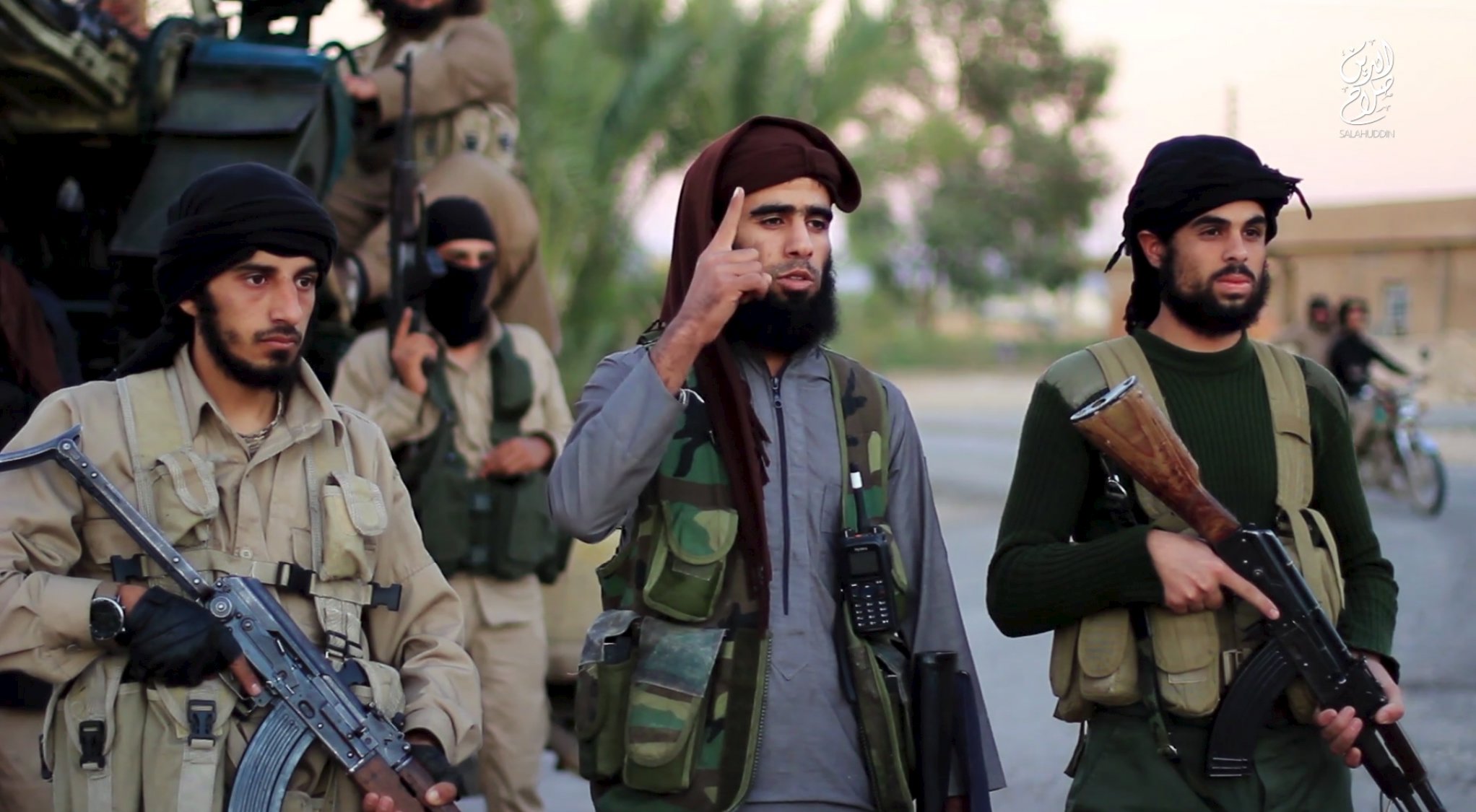
Secretary-General Antonio Guterres says in a new report that the threat to international peace and security from the Islamic State extremist group is rising, pointing to an “alarming” expansion of its affiliates in Africa and its focus on a comeback in its former self-declared “caliphate” in Syria and Iraq.
The report to the U.N. Security Council, which was circulated Tuesday, said IS and other terrorist groups have taken advantage of “the disruption, grievances and development setbacks” caused by the COVID-19 pandemic, both on the ground and online.
While lockdowns in non-conflict areas suppressed terrorist activity, in conflict areas where pandemic restrictions have less impact the threat from IS, also known by its Arabic acronym Daesh, “has already increased,” Guterres said.
“As pandemic-related restrictions gradually ease, there is an elevated near-term threat of Daesh-inspired attacks outside conflict zones by lone actors or small groups that have been radicalized, incited and possibly directly remotely online,” he said.
The U.N. chief said this exemplifies a wider and evolving risk from the accelerated use of digital technologies during the pandemic, and the potential for “new and emerging technologies to be used for terrorist purposes.”
In assessing the Islamic State’s threat, Guterres said its leader, Amir Muhammad Sa’id Abdal-Rahman al-Mawla, “remains reluctant to communicate directly with supporters,” and “the group’s command and control over its global affiliates has loosened, even though it continues to provide guidance and some financial support.”
He said the autonomy of regional affiliates has strengthened especially in West Africa and the Sahel, East and Central Africa, Afghanistan and South Asia. This evolution will be an important factor in Daesh’s future global impact, he quoted unidentified U.N. member states as saying.
Member states also assess that the extremist group “will continue to prioritize regrouping and seeking resurgence” in Iraq and Syria as its core area of operations, he said.
The 16-page report, prepared by Security Council counter-terrorism committee and by experts monitoring sanctions on the Islamic State, said the group remains active in wide swaths of Syria, where it is seeking to rebuild its combat capabilities and expand its insurgency.
Guterres said IS wages hit-and-run operations against checkpoints from hideouts on both sides of the Euphrates River in the eastern province of Deir el-Zour and continues operations against government forces and in the Syrian desert.
In Iraq, IS remains under constant counter-terrorism pressure but continues to carry out hit-and-run operations “seeking to undermine critical infrastructure projects, inflame sectarian divisions and communal grievances and generate media coverage,” he said.
As for the extremist group’s finances, the U.N. chief said estimates of financial reserves available to IS in Iraq and Syria range between $25 million and $50 million, with one unidentified U.N. member state saying most funds are in Iraq.
The secretary-general said the most striking development in the first half of 2021 has been the expansion of IS in Africa, where terrorist groups have inflicted the largest number of casualties.
He said some of the most effective IS affiliates are spreading their influence and activities from Mali into Burkina Faso and Niger, from Nigeria into Niger, Chad and Cameroon, and from Mozambique into Tanzania.
“It highlights that the interplay between terrorism, fragility and conflict has grown stronger, and underscores the need for an urgent, global response to support African countries and regional organizations,” Guterres said.
In Afghanistan, he said, the IS affiliate has expanded its presence in several provinces and in and around the capital Kabul, “despite leadership, human and financial losses during 2020.” In Kabul, most of its attacks have targeted minorities, civil society actors, government employees and security forces, he said.
In the Islamic State’s efforts to regroup and rebuild in Afghanistan, Guterres said the group has prioritized the recruitment and training of new supporters and hopes to attract Taliban members and other militants who reject the U.S.-Taliban agreement as well as fighters from Iraq.
Estimates of IS strength in Afghanistan range widely, from 500 to 1,500 fighters, with one unidentified U.N. member state saying its strength may rise to 10,000 in the medium term, he said.
Guterres said U.N. member states have already warned “that Daesh could regain the ability to orchestrate international attacks if either its core or one of its regional affiliates became strong enough.”
“This scenario has only become more plausible,” the U.N. chief warned.
